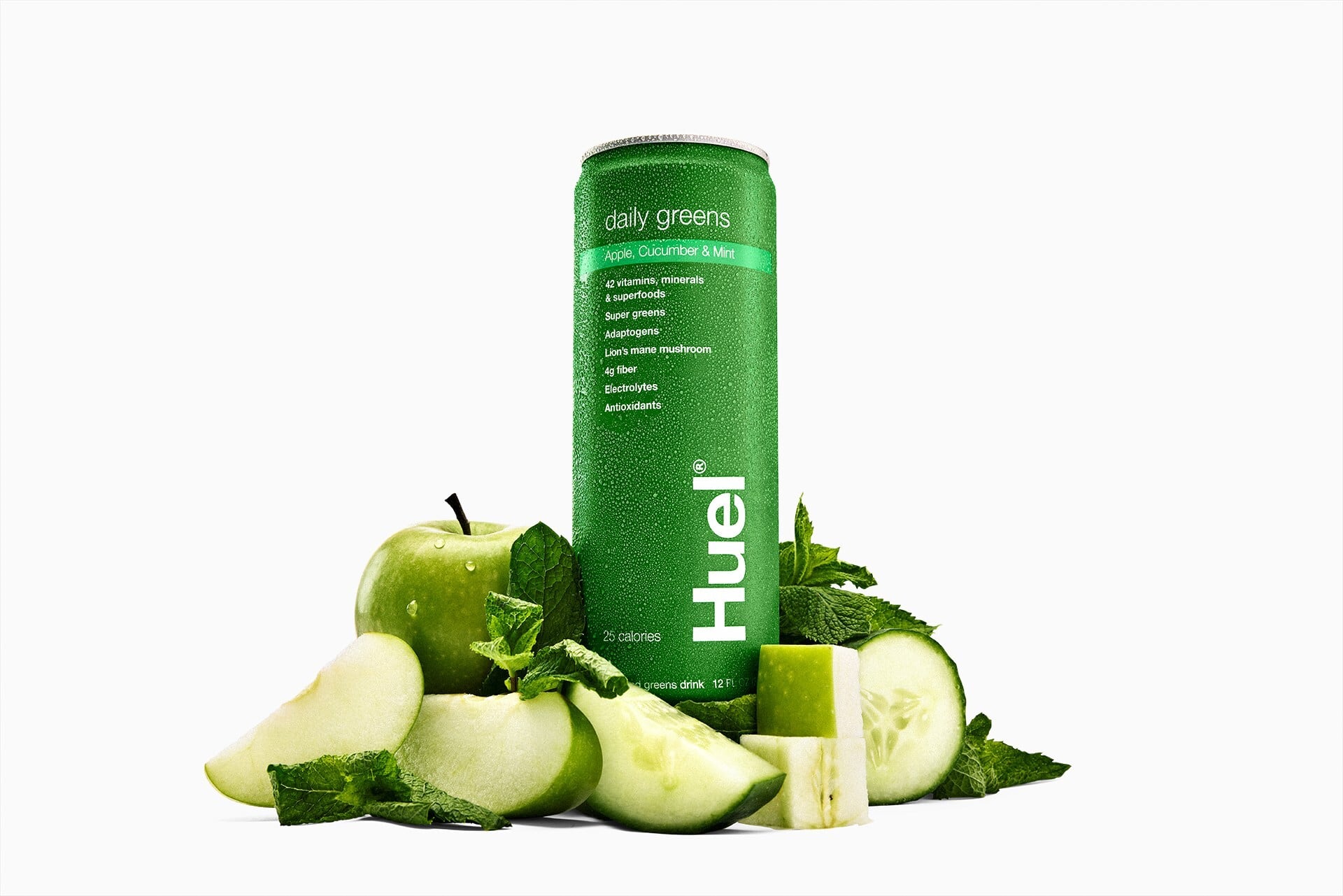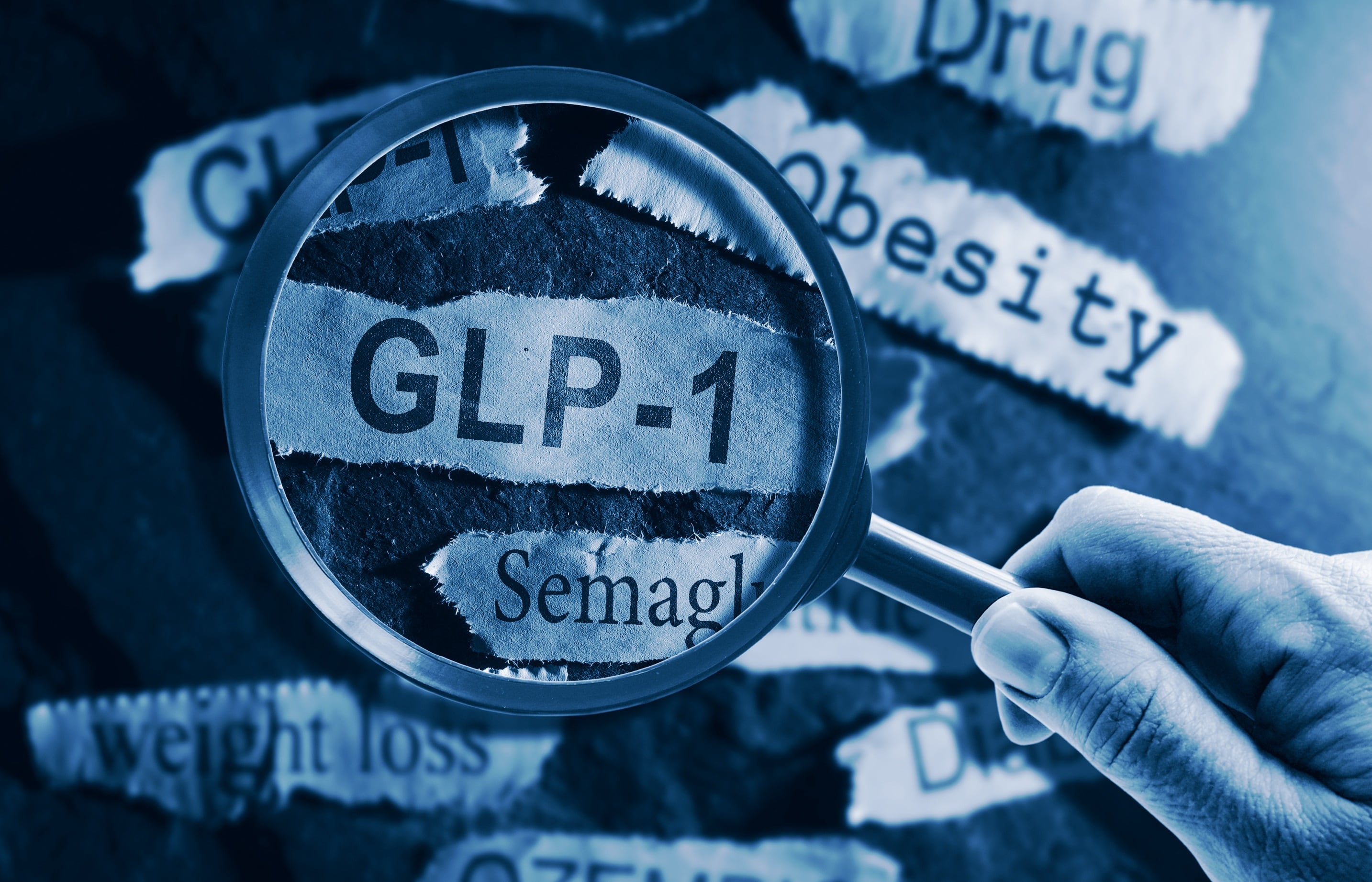Meal replacement brand Huel’s new ready-to-drink version of its Daily Greens protein powder chases the trend in the functional beverage market of consumers seeking targeted outcomes.
The UK-based drink maker, which markets its line of beverages as “nutritionally complete meals,” emphasized the high-protein and micronutrient density of Daily Greens Ready-To-Drink (RTD), said Ilana Orlofsky, senior manager, Customer Experience, at Imbibe, a food and beverage development company.
Along with adaptogen and superfood cues, the product offers customers a combination of convenient nutrition with performance and wellness, she said.
Not just a wellness drink
Daily Greens RTD, which comes in three flavors – apple, cucumber and mint; peach and hibiscus; and blueberry, lemon and lime – boasts 42 vitamins, minerals, superfoods, adaptogens and 4 grams of dietary fiber per 12-ounce serving.
Key ingredients include iron, vitamin B12 and vitamin C, which Huel said “supports mental clarity, immunity, gut health and sustained energy.”
The 25-calorie drink has 1 gram of sugar and is naturally rich in antioxidants and electrolytes, according to Huel.
“Huel Daily Greens RTD is designed for both convenience and performance, making it easier than ever to effortlessly maintain your daily wellness routine,” the company said in a press release.
Huel CEO James McMaster described the drink’s launch as the transformation of a category traditionally dominated by powders. “It’s not just a wellness drink; it’s a smarter, faster way to get complete daily nutrition,” he said.
Tyler Noyes, Huel’s head of US sales, said in an email that the new line of drinks aims to make nutrition more enjoyable and accessible. “This new lightly carbonated, sparkling drink makes maintaining your health and wellness goals feel effortless and refreshing, even when on the go,” he said.
Credible nutrition earns repeat customers
Orlofsky said that while Huel’s Daily Greens RTD remains a “complete meal” at its core, offering a complete-nutrition platform that flexes between meal replacement and active-lifestyle categories.
It follows a similar trajectory as ready-to-drink beverage company Soylent Drink, she said.
“Starting as a simple meal replacement brand embraced by tech-workers and time-pressed users, Soylent moved into functional nutrition: energy drinks, nootropics and higher-protein formats like Soylent’s Complete line and Complete Energy,” she said.
Orlofsky said convenience, nutrition and functional benefits are all important in capturing consumers, but sequence matters.
“Convenience gets manufacturers a trial, but credible nutrition and specific benefits earn repeat customers,” she said.
Consumers are looking for “clean + clear” nutrition with protein, fiber and minerals, along with a clearly stated benefit, such as energy without jitters, gut comfort without bloat and hydration, she said.
“Consumers are also more skeptical – brands are being pushed to substantiate claims, due prebiotic soda lawsuits and settlements, for example, and that is reshaping copy and formulations to include more fiber dosage clarity, strain-specific probiotics and efficacious actives,” she said.
From GLP-1s to creatine: functional beverages evolving
The functional beverage market is growing and targeted outcomes – gut, energy, focus, hydration, sleep, hormone balance and metabolic support – are a big driver for consumers, according to Orlofsky.
“Hydration and gut/mood support have led volume gains, while innovation is flowering in ‘hybrid’ formats: electrolyte + cognitive, protein + creatine and GLP-1-adjacent light-nutrition sips,” she said.
One example is Danone’s Oikos Fusion, which is positioned specifically for GLP-1 user to help mitigate muscle loss, Orlofsky said.
“Similarly, Lifeway’s newly launched Muscle Mates combines protein, creatine and probiotics, illustrating how sports nutrition is increasingly converging with the convenience of ready-to-drink formats,” she added.
Noyes said consumers are looking for products that taste great in addition to health benefits.
“Consumers are increasingly looking for convenience, transparency and effectiveness which allows for great opportunity to innovate and expand the category with new formats, such as our new lightly carbonated supergreens drink.” Noyes said.
Not just for the gym anymore
Creatine and protein in functional beverages are expanding beyond the gym as consumers seek strength, recovery and cognitive benefits, Orlofsky said.
Paraxanthine, a caffeine alternative, also is gaining traction with an offer of “cleaner focus,” she added. Meanwhile, electrolytes and minerals. like magnesium and potassium, remain a go-to for consumers, she said.
“Prebiotics and probiotics continue to see demand, but brands face pressure to deliver efficacious dosing – legal scrutiny has made weak claims unsustainable,” she said. “Adaptogens and nootropics are being used more intentionally, stacked with protein or electrolytes to achieve defined outcomes like calm energy or sharper focus.”




